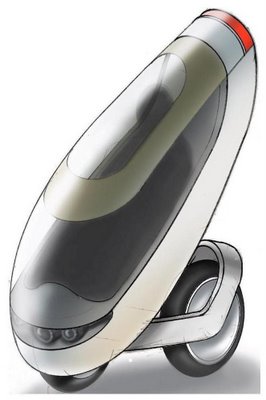European intelligent vehicle test
Submitted by brad on Wed, 2009-10-14 15:30Robocar news:
This press release describes a European research project on various intelligent vehicle technologies which will take place next year. As I outline in the roadmap a number of pre-robocar technologies are making their way into regular cars, so they can be sold as safer and more convenient. This project will actively collect data to learn about and improve the systems.






 I recently met Chris Tacklind, who has a design-stage startup called
I recently met Chris Tacklind, who has a design-stage startup called